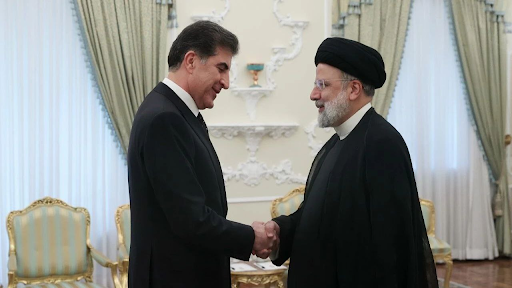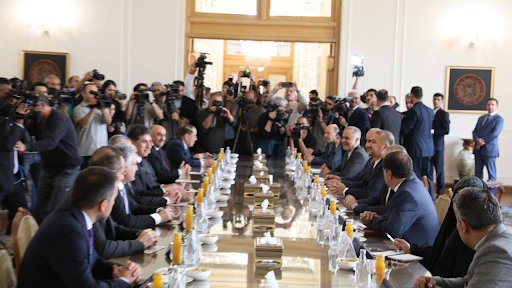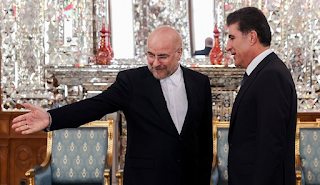During the meeting, Raisi stressed the necessity of disarming groups hostile to the Islamic Revolution and not having them present on Iraqi territory.
Raisi stated, “We expect the Iraqi government and the Kurdistan Regional Government [KRG] to categorically prevent any exploitation of the region’s soil against Iran by the Israeli enemy and anti-revolutionary elements.”
The relationship between Tehran and Erbil has been strained by Kurdish militant groups that use the KRG as a base to attack Iran, and Iranian claims that Israel’s intelligence service, the Mossad, maintains covert bases in the Kurdish region.Iran has struck Kurdish militant training camps and Mossad headquarters, including in Erbil, with missiles in the past year.
The Iranian president explained that “Iran has no objection to expanding cooperation with the Iraqi Kurdistan region on security grounds,” adding, “We consider the long border between the two sides to be a valuable opportunity to improve the level of relations, but security is the basis for any cooperation or development in relations.”Barzani expressed his commitment to the entire security agreement between Iran and Iraq.
He stated that “respect for our relations with Iran and its support for us in difficult times is a red line that we will not cross.”
Dilshad Shahab, the spokesperson for the Kurdistan Region presidency, said that President Barzani wants to reaffirm to Erbil’s allies that the IKR will never become a source of threat to the interests of its neighbors, especially Iran.
“It is no secret that there has been a kind of coldness in these [Erbil–Tehran] relations in recent times; we want to be assured that the common interests of both sides outweigh the obstacles that may arise,” Shahab told Rudaw’s Sangar Abdulrahman.
During his visit to Tehran, Barzani met with a number of Iranian officials, led by the Supreme Leader of the Islamic Republic of Iran, Ali Khamenei.







































No comments:
Write comments